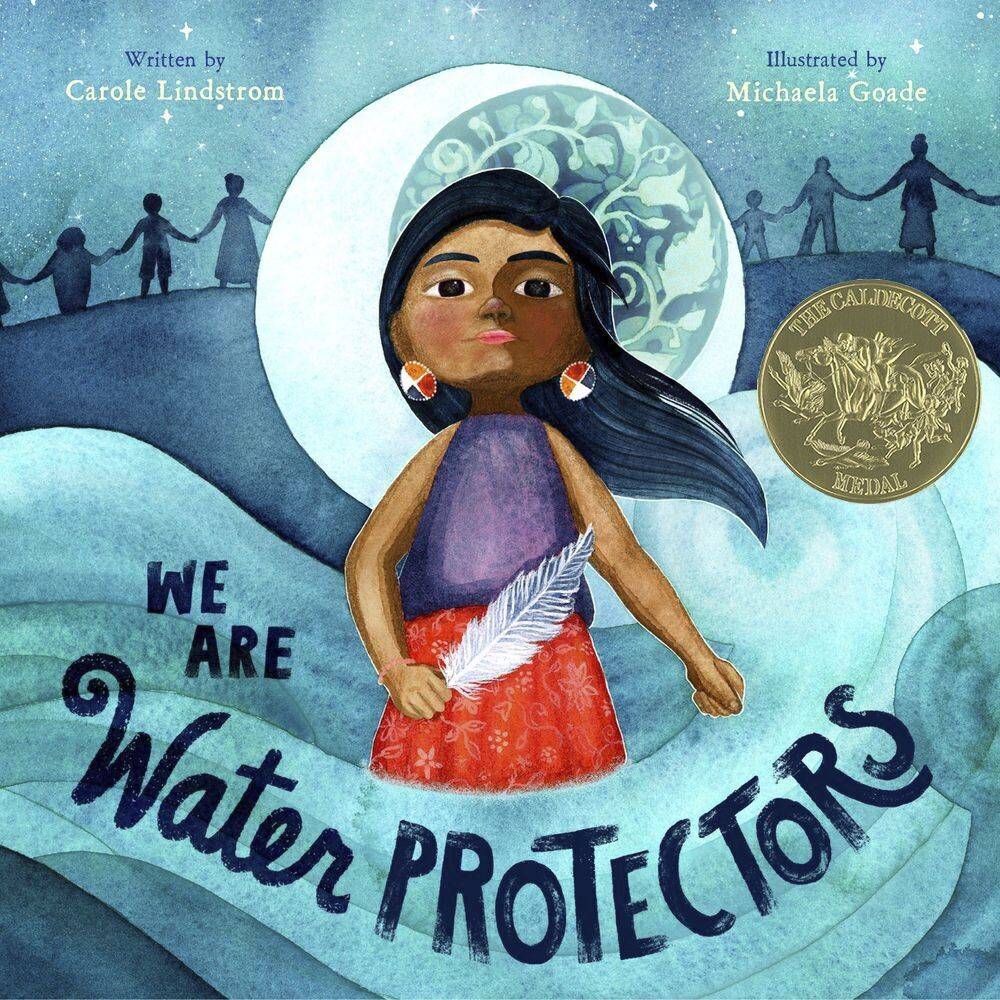By HILLEL ITALIE
AP National Writer
NEW YORK — Illustrator Michaela Goade became the first Native American to win the prestigious Randolph Caldecott Medal for best children’s picture story, cited for “We Are Water Protectors,” a celebration of nature and condemnation of the “black snake” Dakota Access Pipeline.
“I am really honored and proud,” the 30-year-old Goade told The Associated Press in a telephone interview. “I think it’s really important for young people and aspiring book makers and other creative people to see this.”
Tae Keller’s chapter book “When You Trap a Tiger,” in which a young Korean-American explores her identity and her heritage through her grandmother’s stories, won the John Newbery Medal for the outstanding children’s work overall of 2020. Keller, who was raised in Hawaii and now lives in New York, drew upon Korean folklore and family history for “When You Trap a Tiger,” also named the year’s best Asian/Pacific American literature.
“The book really did grow from the recognition of my grandmother as this full person with so much life and so many stories to tell,” Keller, 27, told the AP. “I also did a great deal of research into Korean folklore and Korean history. There was a lot I heard growing up, but I had never had a fuller, deeper understanding of it all. I think that was the most rewarding part of writing this book.”
Jacqueline Woodson, whose previous honors include a National Book Award, won her third Coretta Scott King Award for best work by a Black author for “Before the Ever After.” And a tribute to Aretha Franklin, “R-E-S-P-E-C-T,” received the King award for best illustration. The book was written by Carole Boston Weatherford, with images by Frank Morrison.
The awards were announced Monday by the American Library Association.
“We Are Water Protectors,” written by Carole Lindstrom, was conceived in response to the planned construction of the Dakota pipeline through Standing Rock Sioux territory. Goade, a member of the Tlingit and Haida Indian tribes in Southeast Alaska, was sent a copy of the manuscript through her agent in 2018 and responded immediately to its political message and message of water as a universal force.
“I love how it balanced lyricism and poetry with a powerful message,” says Goade, who used everything from watercolors to Gouache paint as she conjured moods ranging from the water’s sensual blue waves to the harsh black of the snake/pipeline and the burning red of the snake’s tongue.
The Newbery medal was established in 1922, the Caldecott in 1937. Goade, whose other books include “Encounter,” is the first Native American to win in either category. Her next book is the picture story “I Sang You Down from the Stars,” a collaboration with author Tasha Spillett-Sumner that comes out in April.
Goade’s win was widely cheered on social media, including by Lindstrom, who tweeted to the illustrator: “I have no words to describe how proud of you I am. I love you so so much. You are so extremely talented and just an amazing person inside and out.” Dr. Debbie Reese, founder of the educational resource American Indians in Children’s Literature, noted that previous Caldecott awards had gone to stories about Natives that were created by non-Natives, citing Paul Goble’s “The Girl Who Loved Wild Horses” and Gerald McDermott’s “Arrow to the Sun.”
“What I see in this year’s winners is a respect for Native writing,” Reese told the AP. “We are so much more than what the mainstream understands, and slowly — and hopefully surely as we move into the future — editors and readers are coming to understand who we were, and who we are.”
Daniel Nayeri’s “Everything Sad Is Untrue (a true story)” won the Michael L. Printz Award for best young adult novel, and Mildred D. Taylor, known for “Roll of Thunder, Hear My Cry” among other works, was given a “Literature Legacy” award.
Kekla Magoon, who has written or co-written “X: A Novel” and “How It Went Down,” won a lifetime achievement award for young adult books.
Ernesto Cisneros’ “Efrén Divided” won the Pura Belpré prize for outstanding Latinx author. Raul Gonzalez’s “Vamos! Let’s Go Eat” received the Belpré award for illustration. The Stonewall Book Award for best LGBT literature was given to Archaa Shrivastav for “We Are Little Feminists: Families.”

